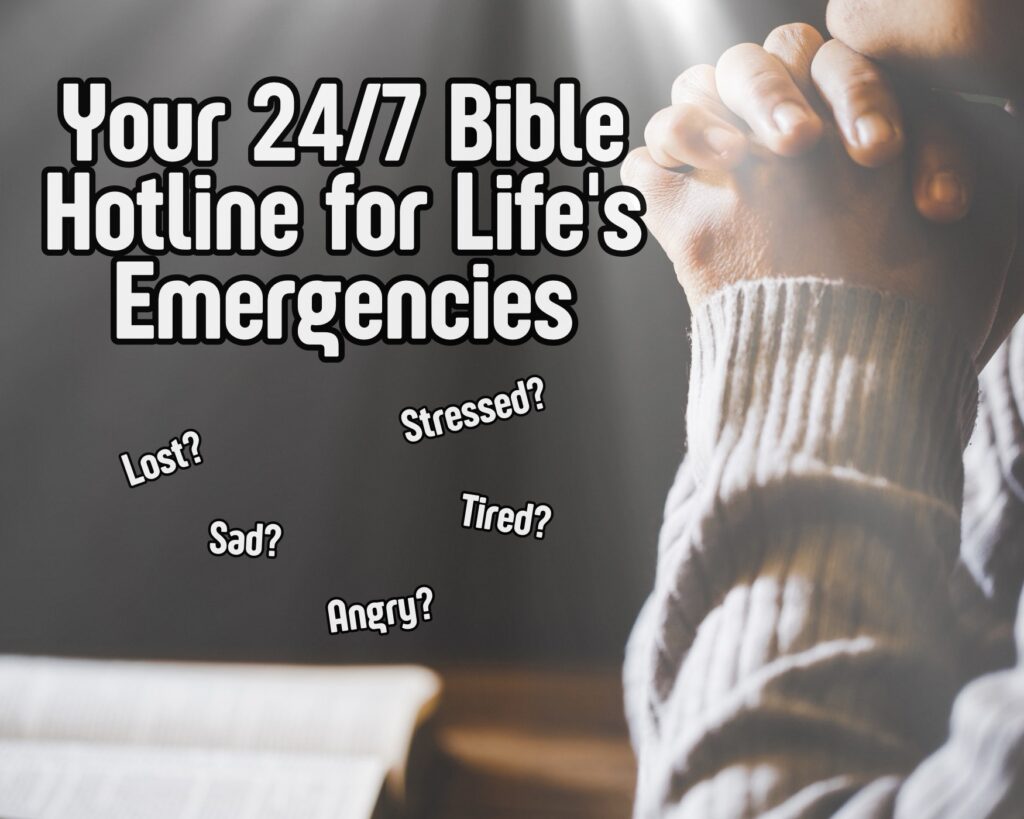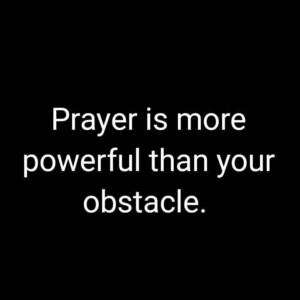In the quiet aftermath of betrayal, where do we find solace? Whether it’s the sting of infidelity, the shock of a trusted friend’s deceit, or the heartbreak of a marriage ending in divorce, the pain of betrayal cuts deep. It’s during these times that many turn to their faith for comfort and understanding. As a Christian, I’ve found that one of the most profound sources of guidance during such trials is Psalm 37.
Psalm 37, a poetic masterpiece of King David, speaks directly to the heart of anyone grappling with the injustice of betrayal. It’s not just a set of verses; it’s a roadmap for navigating the turbulent emotions that accompany such deep wounds. It teaches us about patience, trust, and the art of letting go. As we delve into this Psalm, we discover not just the means to endure our present pain, but also the promise of a brighter, more hopeful future grounded in God’s unfailing love and justice. Let’s explore how this ancient scripture can be a beacon of light in our darkest moments, guiding us towards healing and peace.

Understanding the Message of Psalm 37
When faced with betrayal, our first reactions are often anger, confusion, and a deep sense of injustice. Psalm 37 offers a different perspective, one that encourages us to look beyond our immediate hurt.
Psalm 37:1-2 – “Do not fret because of those who are evil or be envious of those who do wrong; for like the grass they will soon wither, like green plants they will soon die away.”
These opening verses remind us not to dwell excessively on the wrongs done to us or the apparent prosperity of those who have hurt us. It’s a call to refocus our attention away from the source of our pain and towards a more peaceful state of mind.
Psalm 37:5-6 – “Commit your way to the Lord; trust in him and he will do this: He will make your righteous reward shine like the dawn, your vindication like the noonday sun.”
Here, David speaks of committing our troubles to God and trusting in His justice. This trust isn’t passive; it’s an active choice to believe that in time, God will bring about fairness and righteousness in our situation. It’s an assurance that even when things seem bleak, there’s a divine plan at work that leads towards healing and redemption.
By understanding and embracing the message of Psalm 37, we can start to find peace amidst the turmoil of betrayal. It’s a journey from focusing on our hurt to trusting in God’s greater plan for our lives.

The Journey from Anger to Acceptance
Moving through the stages of grief and betrayal often involves a transition from initial anger to eventual acceptance. This process, while challenging, is crucial for emotional healing and spiritual growth.
I recall a friend’s story that beautifully illustrates this journey. Sarah, a devout Christian, faced the shattering experience of a marriage ending in infidelity. Initially, her anger was overwhelming; she felt betrayed not just by her spouse but by her own faith. She struggled with questions like, “How could God allow this to happen?”
In her search for peace, Sarah turned to Psalm 37. The verses became a daily source of strength, helping her gradually shift her focus from her ex-spouse’s actions to her own healing journey.
Psalm 37:8 – “Refrain from anger and turn from wrath; do not fret—it leads only to evil.”
This verse particularly resonated with her. She realized that holding onto her anger was not only harming her spiritual well-being but also preventing her from moving forward.
As she committed her way to the Lord and trusted in His plan, Sarah began to experience a transformation. She found a new sense of acceptance and peace, understanding that while she couldn’t control what had happened, she could control her reaction and path to recovery.
For those seeking guidance and support during such trying times, “Your 24/7 Bible Hotline for Life’s Emergencies” is an invaluable resource. It offers comfort, answers, and hope, reminding us that we’re never alone in our struggles.
Sarah’s journey from anger to acceptance is a testament to the power of faith in overcoming life’s most painful experiences. It shows us that through faith, we can find the strength to heal and embrace a future filled with hope and new possibilities.

How Does Psalm 37 Encourage Us to Trust in God’s Timing and Justice?
In the midst of betrayal, one of the hardest lessons is learning to wait patiently for God’s justice and timing. Psalm 37 offers profound insights into how this waiting can become a powerful tool for healing and understanding.
Psalm 37:7 – “Be still before the Lord and wait patiently for him; do not fret when people succeed in their ways, when they carry out their wicked schemes.”
This verse teaches us the virtue of patience, especially when it seems like those who have wronged us are prospering. It’s a reminder that earthly success, especially when gained unjustly, is fleeting. True justice, though it may seem delayed, is always in God’s hands.
Waiting for God’s timing can be incredibly challenging. It requires a deep level of trust – trust that despite the current pain and injustice, there is a larger plan at work that we may not yet see. This waiting isn’t about inactivity; it’s about actively choosing faith over frustration, peace over panic.
For those who have been betrayed, embracing this aspect of Psalm 37 can transform the way they view their circumstances. Instead of being consumed by the need for immediate vindication, they can find solace in knowing that God’s plan for justice is perfect in its timing and execution.
Through waiting and trusting in God, we open ourselves up to emotional healing and spiritual growth. It allows us to let go of our hurt and embrace a future that, though uncertain, is held securely in God’s loving and just hands.
Cultivating a Heart of Forgiveness
One of the most challenging yet essential aspects of healing from betrayal is learning to forgive. Psalm 37 provides profound insights into the process of forgiveness, guiding us on how to release bitterness and embrace peace.
Psalm 37:8 – “Refrain from anger and forsake wrath! Fret not yourself; it tends only to evil.”
This verse is a clear directive to let go of anger and wrath, emotions commonly associated with betrayal. Holding onto these feelings often leads to a cycle of negativity, impacting our emotional and spiritual well-being.
Forgiveness, as taught in Psalm 37, isn’t about condoning the wrong that was done. Rather, it’s about releasing the burden of anger and resentment, freeing ourselves from the toxic grip of past hurts. It’s about making a conscious decision to move forward, trusting that God will take care of the injustices we’ve suffered.
Practically, forgiveness can start small. It might begin with a prayer for the strength to forgive or a conscious decision to stop ruminating over the hurt. Gradually, as we lean on our faith and the wisdom of scriptures like Psalm 37, forgiveness becomes more accessible.
For those looking for further guidance on this journey from pain to peace, the article “From Pain to Peace: Discovering Hope in Psalm 27 and John 15” provides deeper insights into how scriptures can aid in healing emotional wounds, including the process of forgiveness.
Cultivating a heart of forgiveness isn’t easy, but it’s a crucial step towards healing. As we learn to let go and trust in God’s justice, we find not just peace, but a renewed sense of freedom and hope.

Finding Hope and Renewal in Faith
In our journey of healing from betrayal, it’s natural to have questions about faith, forgiveness, and moving forward. Let’s explore some common queries, incorporating real-life experiences of Christians who have walked this path.
How Can Faith Help Me Heal from Betrayal?
Faith serves as a foundation during turbulent times. It offers hope when circumstances seem hopeless. Consider the story of Michael, a Christian who felt lost after his business partner betrayed him. In his despair, he turned to Psalm 37. The scripture didn’t just offer comfort; it provided a perspective that shifted his focus from his betrayal to God’s faithfulness. Through faith, Michael began to see his situation as an opportunity for spiritual growth and renewal.
Is It Really Possible to Forgive Someone Who Betrayed Me Deeply?
Yes, though it’s rarely easy or immediate. Emily’s story is a testament to this. After her divorce, she struggled with bitterness towards her ex-husband. Over time, and with prayerful reflection on Psalm 37, Emily found the strength to forgive. She realized forgiveness was more for her peace than for her ex-husband. It was a gradual process, but her faith guided her towards a place of forgiveness and inner peace.
How Do I Trust Again After Being Betrayed?
Rebuilding trust is a slow process. It begins with trusting God and then gradually extends to others. John, who experienced a severe betrayal in a close relationship, learned to trust again by first placing his trust in God’s wisdom and timing. This trust in God became the foundation upon which he slowly rebuilt trust in others, guided by the principles he learned from Psalm 37.
How Can I Move Forward After Betrayal?
Moving forward involves a combination of faith, forgiveness, and time. It’s about shifting focus from the pain of betrayal to the promises of God. As Christians like Sarah, Michael, Emily, and John have shown, leaning on scriptures like Psalm 37 can provide the strength and guidance needed to navigate this challenging journey.
“Healing After Heartbreak: Trusting God’s Plan Through Psalm 37” is more than an exploration of a biblical text; it’s a guide to finding hope and renewal amidst life’s deepest hurts. Through the real-life stories of fellow Christians and the timeless wisdom of Psalm 37, we discover that healing is possible, forgiveness is attainable, and a renewed sense of trust and hope is within reach. As we close this chapter, let’s carry with us the lessons of resilience, forgiveness, and the unwavering love of God that guides us from heartbreak to healing.
As an Amazon Associate we earn from qualifying purchases through some links in our articles.



